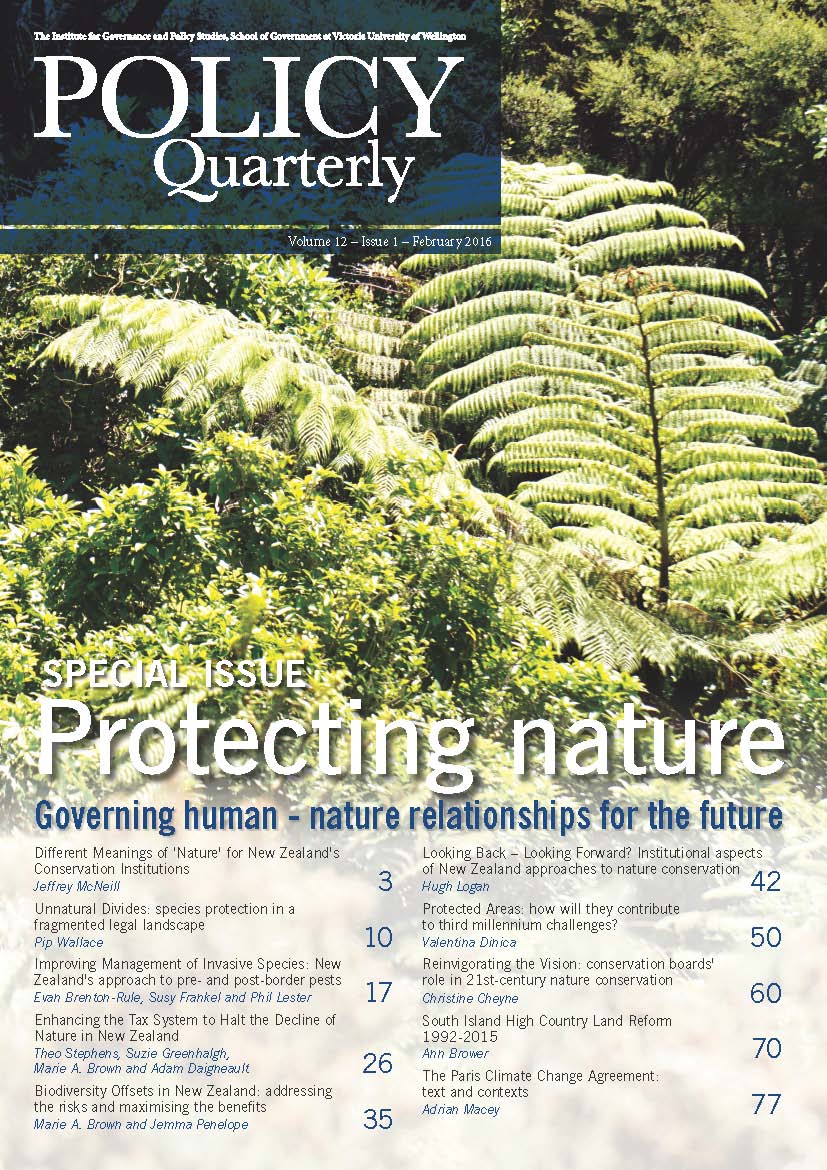Enhancing the tax system to halt the decline of nature in New Zealand
DOI:
https://doi.org/10.26686/pq.v12i1.4574Keywords:
natural heritage, Anthropogenic climate change, land use change, biodiversity loss, sixth great extinction, Legally protected areas, integrate economic and environmental management, the land use tax, Private sector benefitsAbstract
New Zealand is world-renowned for its nature – its lush forests, spectacular mountain landscapes, wild and scenic rivers, beautiful coastlines and extraordinary biodiversity. This natural heritage is the foundation of New Zealand’s identity and its branding, and the premier attraction for the tourism industry. It provides habitable environments, contributes to economic production and assimilates wastes, and is an important source of great enjoyment, health and well-being (Roberts et al., 2015). Nature contributes to the success of the nation’s fishing, farming, forestry and tourism industries, which provide about 52% of national export income (Ministry of Business, Innovation and Employment, 2013). But these values and the well-being and prosperity they enable are being diminished and degraded at an alarming rate.
Downloads
Downloads
Published
Issue
Section
License
Permission: In the interest of promoting debate and wider dissemination, the IGPS encourages use of all or part of the articles appearing in PQ, where there is no element of commercial gain. Appropriate acknowledgement of both author and source should be made in all cases. Please direct requests for permission to reprint articles from this publication to Policy-Quarterly@vuw.ac.nz.



